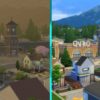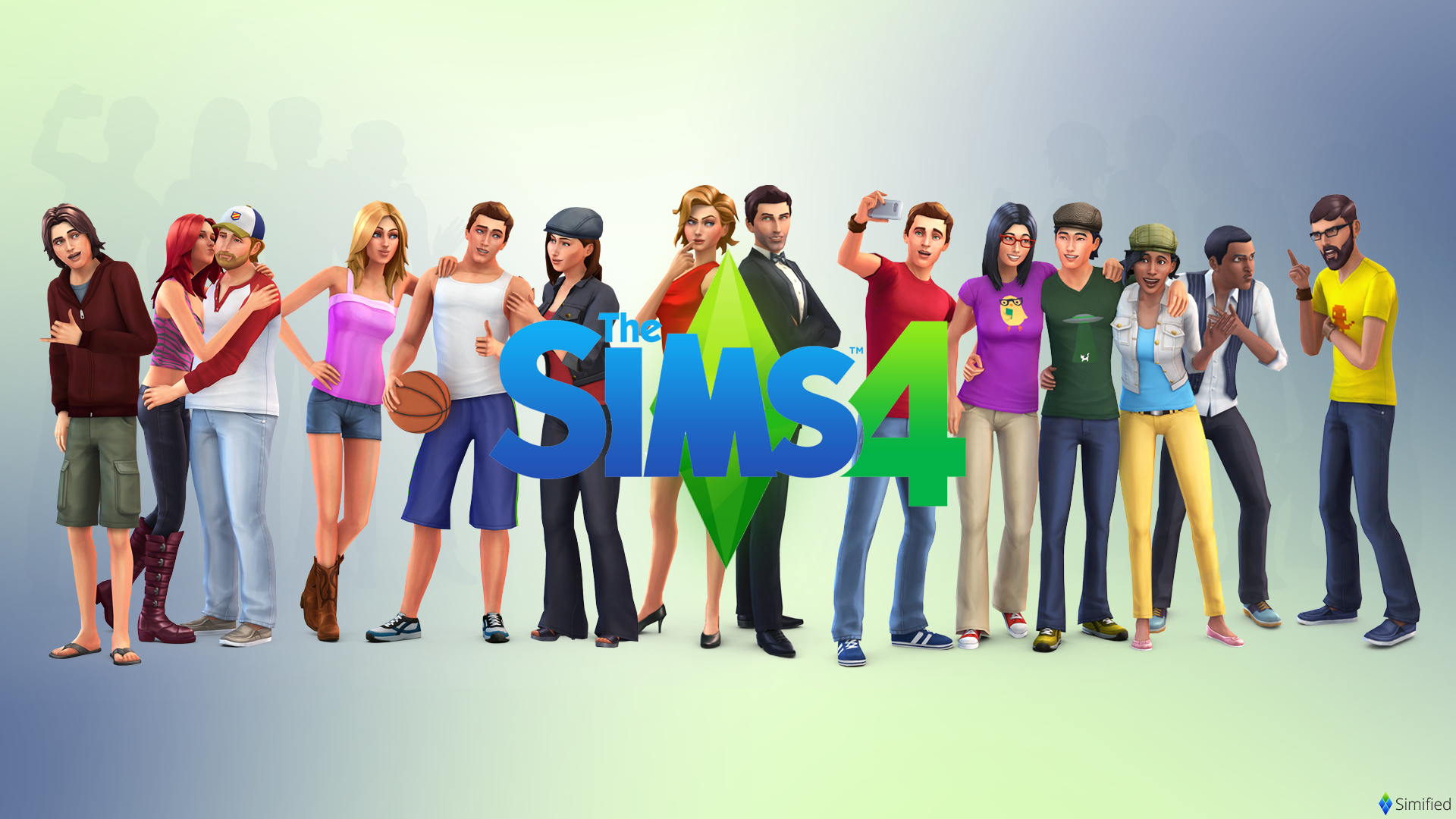Earlier this week I had the chance to get hands-on with The Sims 4, and while I was there I got to speak with Graham Nardone, the Associate Producer of the game. We spoke about a variety of topics, including what his position is like, how the development team handles feedback, and what will entice owners of The Sims 3 to upgrade.
PS: First off are you able to give us an overview of what being an associate producer actually means?
GN: Oh, sure, a kind of ‘day in the life’! A lot of what I do is interesting because producers kind of have their hands in everything, so you know- working with the artists, working with the engineers, working with marketing to do events like these. So I think production’s actually really fun in terms of just being hands-on with everything. In terms of day-to-day responsibilities a lot of what I do is get very hands-on with specific features, so at Associate Producer level you’re looking at different aspects of the game, you have things assigned to you and ultimately the way that feature goes out the door is your responsibility. So you’re setting the quality bar, acting as a sort of advocate for our players and making sure that it’s fun, it’s polished, it feels good to play. That’s kind of on us as producers to, you know, make sure it’s good to go. One interesting assignment I had on this project is, I get to run something called “change review”, and that’s our period after pre-production, where we set aside a chunk of time and we say “We know we’re going to want to iterate, we know people are going to see this and get hands-on with it, and there’s going to be feedback and things we want to change” and so with that chunk of time we set it up and as feedback and requests come in we stick it in there, and we evaluate and decide what’s going to make the final cut. So being able to run that entire process was kind of a really interesting place to be in this project. It was a bit more difficult than expansions (because I came from The Sims 3) because the lead up to announcing those was much later than it would be for a base game like this, so we got to get so much more feedback, and feed that back into this process. It was fun just being a part of that.
PS: The Sims has a massive community, with so many outlets for people to talk about things, so how do you filter through all that to find stuff that’s useful?
GN: You really can’t [laughs] I spend a lot of time, a lot of free time even, just reaching out, chatting with our fans. You know, we’re on the official forums, but I head out to community sites as well. Not only browsing them, but logging in and chatting on them, just having one-on-one discussions with people because, I mean, you can browse a big forums thread that’s focusing on one specific subject, and a lot of people are saying a lot of things, but until you’re having a conversation with them and getting that one-on-one feedback, and understanding what they’re saying and why they’re asking for it, that’s when you start getting a really good idea about what it is specifically that they want to see and what it is that they’re interested in. We do a lot of things on Twitter as well. I’m one of, gosh I don’t know… maybe about 25? 30 different developers who are on Twitter now? And fans just come on there, and they connect with us and that’s something that I really appreciate about our studio actually. I can’t even imagine being the PR person, actually, who’s trying to wrangle all of us who are talking on Twitter directly to all these fans, cos that has to be a nightmare from a PR standpoint- cos us developers will just say whatever. But being able to have those direct conversations with our players is such a cool thing, and just helps tremendously when we’re making the game.
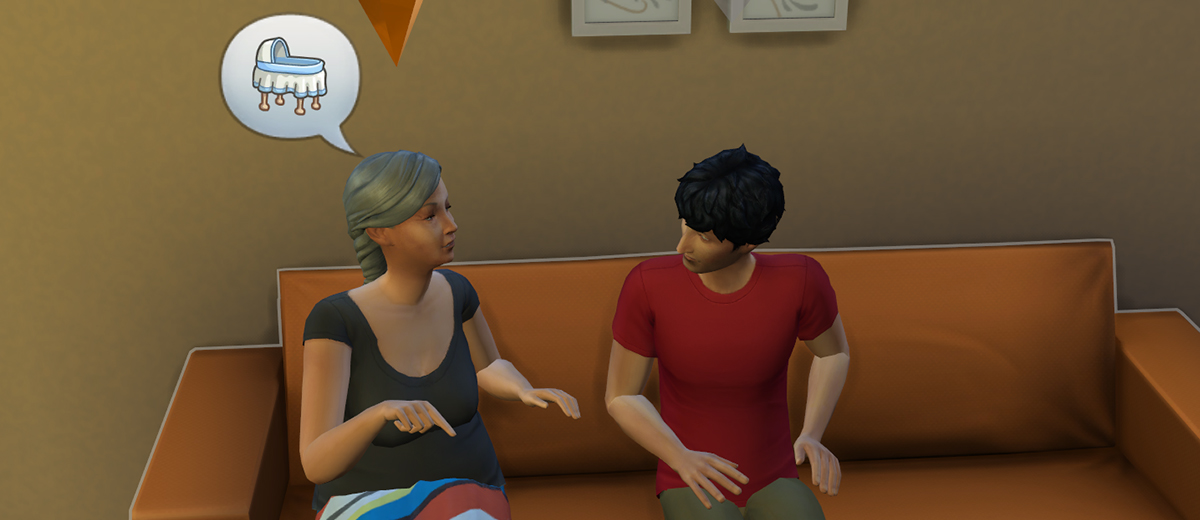
PS: So what were the bits of feedback that popped up frequently?
GN: [chuckles] Well, you know, it’s a variety of things. There’s grand expectations for what a Sims game is. So there’s always really big features that they want to talk about that they’re interested in. We got a lot of feedback about Emotions, just because that was a big focus for The Sims 4. Initially when we started talking about it, players were kinda scared about it because it is so different from what’s in other Sims games and this is going to drastically change the way I play the game, and really for us this is a way for us to add more depth to the game. So not only, you know, getting in front of a crowd at Gamescom or E3 and giving a 10 minute game demo. That’s not really enough time to go in-depth and talk about how this system works, how this feature is going to change the way you play the game. And going back to the community again and having those conversations, clarifying what we were saying, posting and talking to them and saying what this means, and how it’s going to work, that creates these really cool moments for us. And then we go back with this feedback from them and use it to form a discussion on how we’re going to handle certain things. Specifically, there’s things about emotions that people don’t want to see- right now when you’re playing the game and you see the emotion of your Sim, they all have a colour associated with them. So one of their biggest fears was “Are colours in turn going to influence my Sim? So will a blue room make my Sim sad?” And they were worried about that, but that wasn’t our intent. And we made sure, knowing that they didn’t want that, that we didn’t go down that path. So it’s very important having that two way discussion.
PS: So obviously with the large number of expansion and stuff packs that Sims games have, you can’t include everything from the previous game, but how do you prioritise which features that have popped up across the games are essential for the base game?
GN: Yeah, it’s an interesting conversation just to have about the Sims games in general, really. If you look back at every Sims game as we went along, and what’s in the base game, there’s some constants, and there’s some things that have changed as time has gone along, and The Sims 4 is no different, really. When we were setting out and deciding what the core of the game was going to be, figuring out what those basic features are, implementing them, and then building on top of that with smart things that kind of loop back in to what those core featuresets are. So, you know, there’s stuff in The Sims 4 that’s never been in the Sims franchise before, so brand new features. There’s also things that previously were in expansion packs, things like woodworking and bartending, which were always expansion pack features in the past, but they’re all in the base game now. So any time we release a base game like this there’s always going to be some features that are slightly mixed up, some new stuff, some stuff that isn’t there anymore, and then depending on how our fans respond to that, that’s where we start evaluating and prioritising what we’re going to do pushing the game forward and in the future.
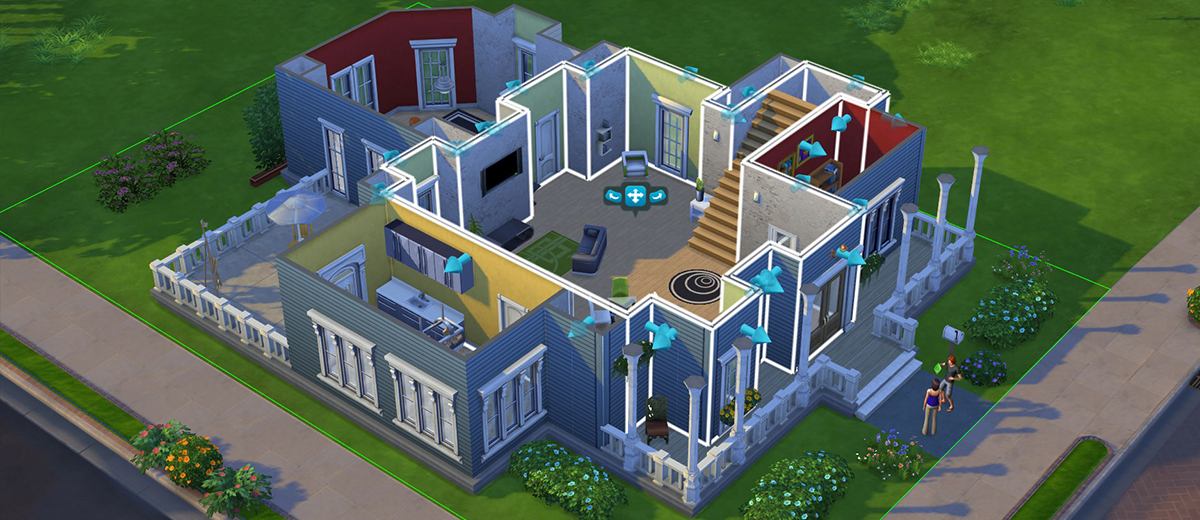
PS: So for someone like my sister who’s a HUGE fan of The Sims and has The Sims 3, every expansion pack, every stuff pack, and even some store content, what are the big things at the core of The Sims 4 that will convince her to upgrade to the new game?
GN: I really think it goes back to the Sims. When we think about our Sims, and what we focused on for The Sims 4 was changing how they feel, how it feels to interact with them, how they live in the world around them, and how much more natural it is. Really if you go back to previous Sims games and you start to play them, and examine them a little closer (especially in direct comparison to The Sims 4), the Sims really were quite robotic in the way they operated, and moved, and behaved in previous games, and it’s much more natural now. A lot of that comes from layering on those emotions, really building their personalities in Create A Sim, and so now not only are they behaving in believable ways, but they’re animating interacting with their world in believable ways. Just the way that they forms groups and have social conversations with each other, it’s so much more fluid than it’s ever been in a Sims game before. We actually did some interesting research to just inform those decisions and how that would come together in the game. We would have social gatherings in the studio, you know, party’s or whatever, and we would put up cameras to watch people
[we both laugh]
And we would see the way that they interact- whether they join conversations, or shout across the room at each other, no matter what it is, just trying to understand human behaviour and how humans approach a situation and layering that onto our Sims. It’s actually really drastic when you look at them directly in comparison to each other, and I think if there’s a best reason to play The Sims 4 it’s got to be how much better the Sims are.
PS: When developers of The Sims get mad at each other, do they make each other in the game and use it like a voodoo doll?
GN: [laughs] I don’t know about the developers, but we certainly see some of that with the fans, which is pretty funny. I talked about how a lot of us are on Twitter now, and we do live broadcasts, and we go out to events like these to meet the fans, and I think it’s gotten to the point where they’ve known us for a few years now, they recognise us, they start to pick up on some of our individual characteristics and traits. And so they do go back and make us in-game and do funny things like that. You’ll see stories pop up on the forums. I think one of the funniest ones I’ve seen recently was, somebody took three of us (myself included) and made an animated cartoon out of us, which was, you know, making fun of the things we do in our presentations and it’s all good-natured humour. You never expect when working on a game that it’s going to lead into something like that but that’s just some of the fun in interacting with the fans, especially with a game like The Sims how you can feed that back into the game, and it’s quite realistic at times in the way it makes people behave [laughs]
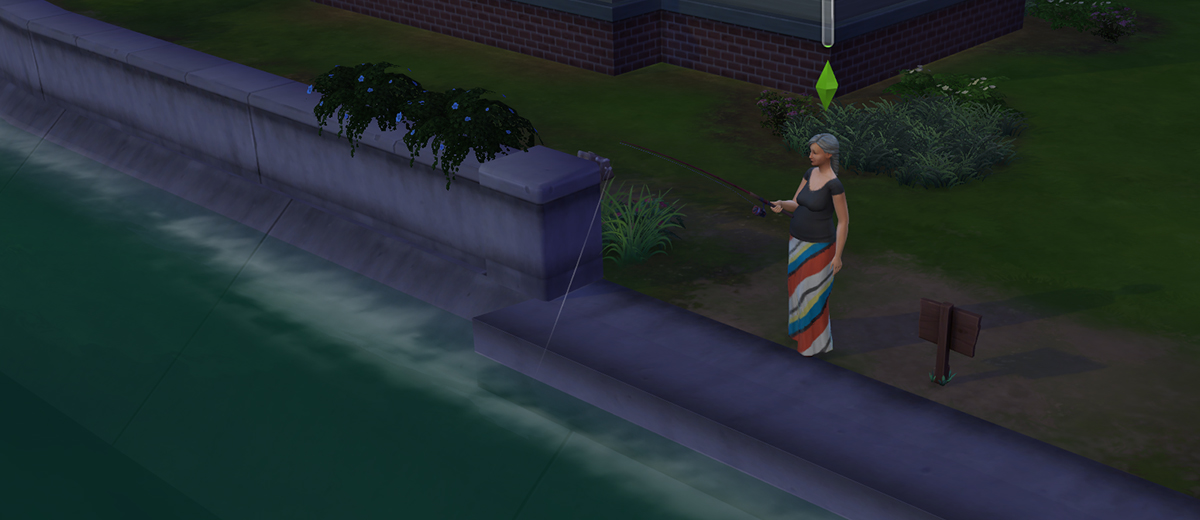
PS: What is it about The Sims that you think gives it its broad appeal?
GN: Well, I mean, obviously it’s a life simulation so there’s already a base there of what you can do in-game that’s very broad and attracts a wide range of people. When we look at who buys the game, it’s actually very interesting because it’s a pretty even breakdown across about four different types of players. So there’s people who are just really creative and love to build stuff, be it in Create A Sim or Build Mode. Those people will rarely even touch Live Mode, they just want to spend all their time creating. We have people who are storytellers, who want to have a very specific scenario that they’re going to run through in-game, achievers who want to accomplish everything there is in the game, and of course the deviant type of players who just love messing with their Sims’ lives. So we think about that a lot when we’re creating content and deciding what we’re going to make for the game. And I think that’s just a fun way for all of that to come back through via our players.
PS: So being a PC game, there’s not really a standard architecture like there is with consoles, how do you go about balancing [Graham laughs] a game that people with lower-end computers can run, while also enabling those with better computers to push the game more?
GN: Yeah, I mean, that’s always the challenge of PC development, right? The Sims 4 actually runs fantastically on some older computers, it scales quite well.
PS: Yeah, I was surprised at how low the minimum requirements were
GN: Yeah, and the art style certainly helps with that. I think we have a gorgeous art style in-game, but at low-end when we start disabling shaders, or lowering polygons or whatever, it holds up quite well just so that we can be across that wide spectrum of PC hardware. But actually, when you set it to Ultra, and have all the settings cranked up, there’s a lot of gorgeous stuff going on in-game. We did this really cool tech with the light rays coming through, and not only are they being cast by the objects in the world, but also the home you’re building. So you can have light streaming through the columns in your living room, just cool stuff like that. So there’s all sorts of fun bells and whistles for people with high-end computers to use as well.
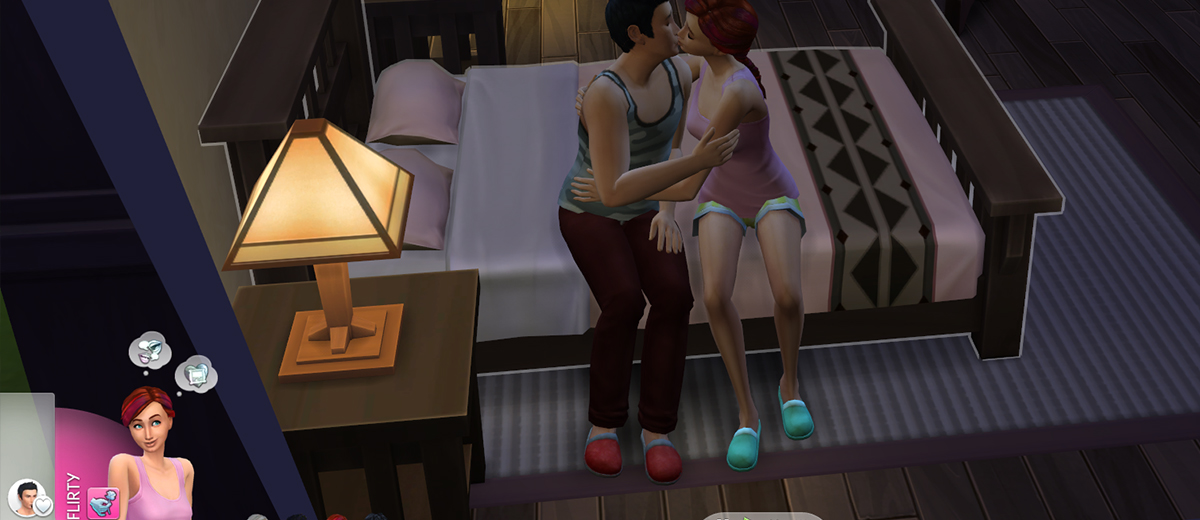
PS: Also with it being a PC game, you’ve said the game will have mod support. What exactly will that involve?
GN: So mods and custom content, we consider them two separate things. It’s really the community that’s defined these things for us. And it’s always been a part of The Sims, it’s a classic thing associated with the franchise, so it was really important for us that we continue to support that for them. Actually, the game’s not even out yet and people have already created custom content and mods because they have the Create A Sim demo. So there making new clothing, their own hairstyles, all sorts of really cool stuff. And that’s all going to be there Day 1 for any people who pick up the game, and I think that’s neat! In terms of supporting it, there’s a lot of things in-game supporting it. So we’ve made dedicated folder structures for people who want to make mods and custom content, you can access a menu in-game that shows you what mods you have installed and what version it’s at, stuff like that. We just wanted to have the support there in place for players who are interested in that experience, and making ourselves available as well. We had our lead programmer recently chatting with some of our fans who are interested in that sort of custom content creation, and talking about what things were possible, and how they should start thinking about things and approaching them for this new game, because yeah, it is going to be different to previous iterations in terms of what they have to know in order to mod it. So we’re already out there starting those conversations and we’ll continue doing that once the game’s out as well, because that’s really important for us to support.
PS: And final question- so you’re a Sim Guru, [Graham laughs] what does that involve, and is there training you have to undertake to earn that title? Like a pilgrimage or anything?
GN: Yeah… there’s nothing really formal about it, it’s actually a really casual thing for us. It’s actually what I was touching on earlier, where I’m amazed that as a development team we’re allowed to do this. It was really started by one of our senior producers back on The Sims 3, and we felt there was a period of time early in The Sims 3 where we kind of lost that connection to our community. You know, everything we said had to go through PR, and that would take a week, and then it would have to get translated into all these languages and that would take another week. And so by the time it we were responding to anybody, there’s this weird lag time and it doesn’t feel personal or authentic. And so she was encouraging a lot of people to just get on Twitter, and so we all made our Sim Guru accounts, and people have just joined in as it’s gone along. There’s no real specific requirements, anybody on the team who wants to be a Sim Guru can just go out there and start chatting with fans. And so we have producers, designers, engineers, artists, some of our audio people in there, some of the marketing and PR people go out there and do it even. We have QA testers who are on there. So long as you are at EA and on The Sims somehow you can get a Guru account and go out there, chatting with people. And you know, we just try to give people some guidelines, like “Hey, we haven’t announced this content, you shouldn’t go out and talk about it”. But it’s very much this kind of homegrown thing within our studio where we felt it was important we could directly talk to our fans, and it’s grown into this great thing. It’s one of the best parts of being able to work there.
PS: Awesome, thanks for your time!
GN: Absolutely, no problem!
